
CHRISTINE FALLS
CHRISTINE FALLS
A NOVEL
BENJAMIN BLACK
HENRY HOLT AND COMPANY NEW YORK

Henry Holt and Company, LLC
Publishers since 1866
175 Fifth Avenue
New York, New York 10010
www.henryholt.com
Henry Holt and  are registered trademarks of
are registered trademarks of
Henry Holt and Company, LLC.
Copyright 2006 by Benjamin Black
All rights reserved.
Library of Congress Cataloging-in-Publication Data
Black, Benjamin, 1945
Christine Falls: a novel / Benjamin Black.1st ed.
p. cm. ISBN: 1-4299-0622-7 1. PathologistsFiction. 2. Dublin (Ireland)Fiction. 3. Upper classIrelandFiction. 4. CatholicsFiction. 5. Psychological fiction. I. Title. PR6052.A57C49 2006 823'.92dc 22 2006043581
To Ed Victor
CHRISTINE FALLS
Contents
ONE
Chapter 1
Chapter 2
Chapter 3
Chapter 4
Chapter 5
Chapter 6
TWO
Chapter 7
Chapter 8
Chapter 9
Chapter 10
Chapter 11
Chapter 12
Chapter 13
Chapter 14
Chapter 15
Chapter 16
Chapter 17
Chapter 18
Chapter 19
Chapter 20
Chapter 21
Chapter 22
Chapter 23
Chapter 24
THREE
Chapter 25
Chapter 26
Chapter 27
Chapter 28
Chapter 29
Chapter 30
Chapter 31
Chapter 32
Chapter 33
Chapter 34
Chapter 35
EPILOGUE
ACKNOWLEDGMENTS
ABOUT THE AUTHOR
SHE WAS GLAD IT WAS THE EVENING MAILBOAT SHE WAS TAKING, FOR she did not think she could have faced a morning departure. At the party the night before one of the medical students had found a flask of raw alcohol and mixed it with orange crush and she had drunk two glasses of it, and the inside of her mouth was still raw and there was something like a drum beating behind her forehead. She had stayed in bed all morning, still tipsy, unable to sleep and crying half the time, a hankie crushed to her mouth to stifle the sobs. She was frightened at the thought of what she had to do today, of what she had to undertake. Yes, she was frightened.
At Dun Laoghaire she paced back and forth on the pier, too agitated inside herself to stand still. She had put her luggage in the cabin and had come back down to the dock to wait, as they had told her to. She did not know why she had agreed to what had been asked of her. She already had the offer of the job in Boston, and now there had been the prospect of the money as well, but she suspected it was more that she had been afraid of Matron, afraid to refuse when she had asked if she would bring the child with her. Matron had a way of sounding the most intimidating when she spoke the softest. Now, Brenda, she had said, looking at her with those goggle eyes of hers, I want you to consider carefully, because its a big responsibility . Everything had felt strange, the sick sensation in her stomach and the burning in her mouth from the alcohol, and the fact that she was not wearing her nurses uniform but the pink wool costume she had bought specially to go away inher going-away suit, as if she was getting married, when instead of a honeymoon she would have a week of taking care of this baby, and not a hint of a husband. Youre a good girl, Brenda, Matron had said, putting on a smile that was worse than one of her glares. May God go with you. She would need His company, all right, she thought mournfully now: there was tonight on the boat, then the train journey tomorrow to Southampton, and then five more days at sea, and then what? She had never been out of the country before, except once, when she was little and her father took the family on a day trip to the Isle of Man.
A sleek black motorcar was edging its way through the crowds of passengers going toward the boat. It stopped when it was still a good ten yards away from her, and a woman got out at the passenger side with a canvas bag in her hand and a bundle in a blanket in the crook of her other arm. She was not young, sixty if she was a day, but was dressed as if she were half that, in a gray suit with a narrow, calf-length skirt belted tightly at the waist, her little potbelly sticking out under the belt, and a pillbox hat with a bit of blue veil that came down below her nose. She walked forward over the flagstones, unsteady in stiletto heels, her painted-on mouth pursed in a smile. Her eyes were small and black and sharp.
Miss Ruttledge? she said. My name is Moran. Her fancy accent was as fake as everything else about her. She handed over the bag. The babys things are in there, with her papersgive them to the purser when you get on board at Southampton, hell know who you are. She examined Brenda closely, making slits of her little black eyes. Are you all right? You look pale.
Brenda said she was fine, that she had been up late, that was all. Miss Moran, or Mrs., or whatever she was, smiled thinly.
The parting glass, eh? She held out the bundle in the blanket. Here you aredont drop it. She laughed shortly, then frowned at herself and said, Sorry.
What struck Brenda first about the bundle was the heat: it might have been a lump of burning coal that was wrapped in the blanket, except that it was soft, and that it moved. When she held it against her breast something in her insides flipped like a fish. Oh, she said, a weak gasp of surprise and happy dismay. The woman was speaking to her again but she was not listening. From deep down in the folds of the blanket a tiny, filmy eye was regarding her with what seemed an expression of dispassionate interest. Her throat thickened and she was afraid the mornings waterworks might start up again.
Thank you, she said. It was all she could think to say, although she was not sure who it was she was thanking, or for what.
The Moran woman shrugged, pulling her mouth up at one side in a sketch of a smile.
Good luck, she said.
She walked back rapidly to the car, her high heels clicking, and got in and pulled the door shut. Well, thats done, she said, and through the windscreen she watched Brenda Ruttledge, still standing where she had left her on the dock, gazing into the opening in the blanket, the canvas bag forgotten at her feet. Look at her, she said sourly. Thinks shes the Blessed Virgin. The driver made no comment, only started up the car.
IT WAS NOT THE DEAD THAT SEEMED TO QUIRKE UNCANNY BUT THE living. When he walked into the morgue long after midnight and saw Malachy Griffin there he felt a shiver along his spine that was to prove prophetic, a tremor of troubles to come. Mal was in Quirkes office, sitting at the desk. Quirke stopped in the unlit body room, among the shrouded forms on their trolleys, and watched him through the open doorway. He was seated with his back to the door, leaning forward intently in his steel-framed spectacles, the desk lamp lighting the left side of his face and making an angry pink glow through the shell of his ear. He had a file open on the desk before him and was writing in it with peculiar awkwardness. This would have struck Quirke as stranger than it did if he had not been drunk. The scene sparked a memory in him from their school days together, startlingly clear, of Mal, intent like this, sitting at a desk among fifty other earnest students in a big hushed hall, as he laboriously composed an examination essay, with a beam of sunlight falling slantways on him from a window somewhere high above. A quarter of a century later he still had that smooth seals head of oiled black hair, scrupulously combed and parted.
Next page
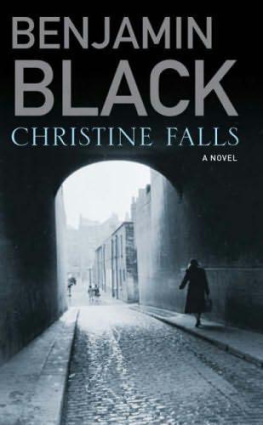
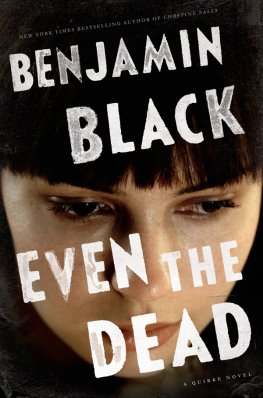
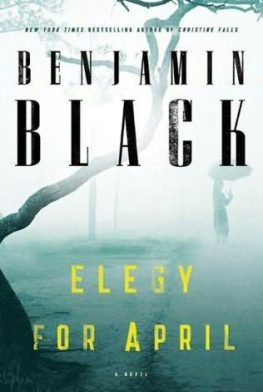
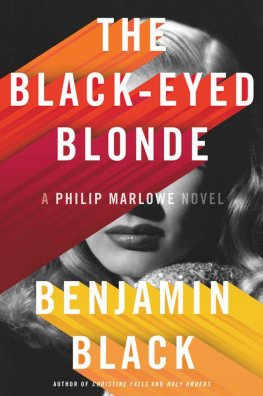
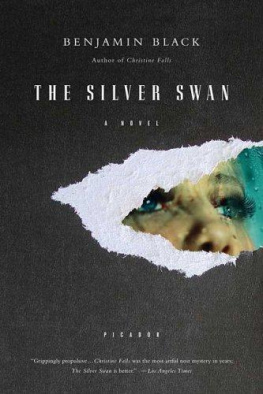
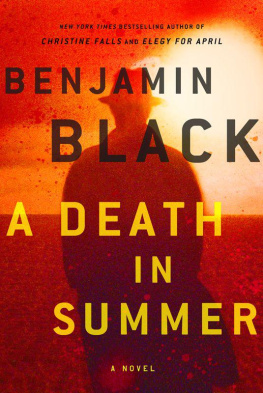
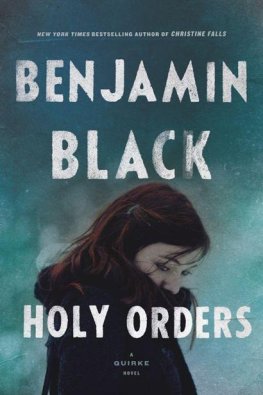

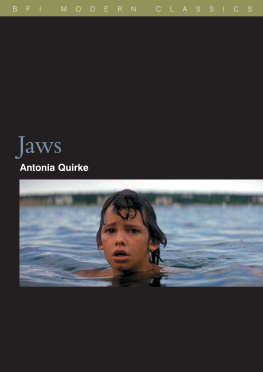
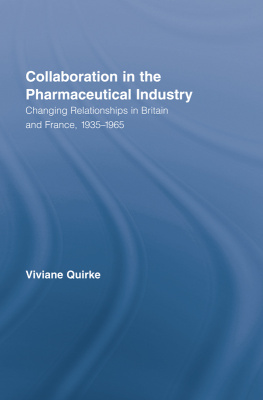


 are registered trademarks of
are registered trademarks of